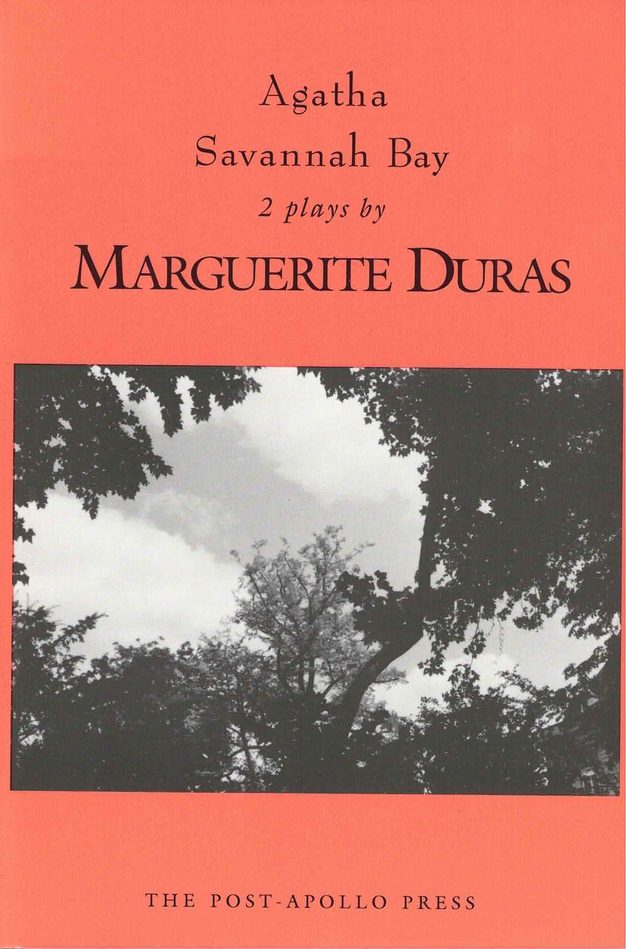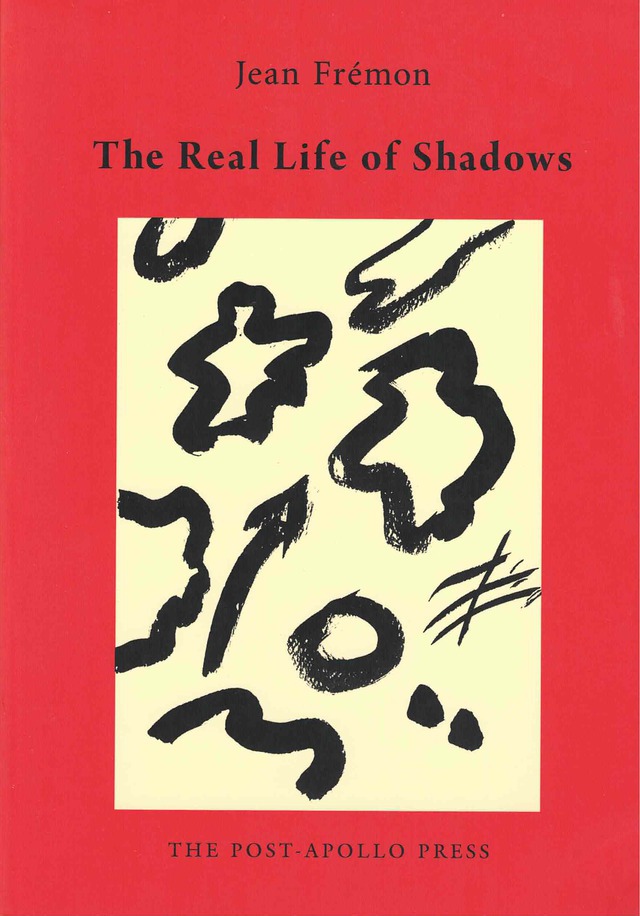The most absolute literary personality in France today has written there her most important and beautiful plays. Whether she is talking about incest (Agatha) or motherly love (Savannah Bay), Duras is forever investigating the “mad love” that few of her heroines can survive.
Agatha is a semi-autobiographical play about a woman and her brother who meet at a deserted seaside hotel to confront their incestuous love for each other. Agatha was released as a film, Agatha et les lectures illimitées [Agatha and the Limitless Readings], directed by Duras, in 1981. As Duras wrote about the play, “Incest cannot be seen from the outside. It has no particular appearance… It is like nature. It grows up with nature, dies without ever having come to light, remains in the darkness of the bottom of the sea, in the darkness of the sands of the depths of time…”
Savannah Bay was played in Paris to delirious audiences. It was a play written (and directed) by Duras for Madeleine Renaud, a unique actress for whom she wrote in the Foreword: “You know you must play: you don’t remember what, you just play. Nor can you remember what your roles were, nor which of your children are alive or dead. Nor which are the locations, the settings, the capitals, or the continents, where you cried the passion of lovers. Only that the people in the audience have bought a ticket and that somebody owes them a performance. You are the stage actress, the splendor of the age of the world, its crowning achievement, the glory of its last delivery. You have forgotten everything except Savannah, Savannah Bay. Savannah Bay is you.”
Marguerite Duras
Howard Limoli
Praise for Agatha & Savannah Bay
Marguerite Duras’ work, always autobiographical, always obsessive, is forever investigating the “mad love,” the love that possesses body and soul and that few among her heroines or heroes survive. In Agatha, a brother and sister are madly in love with each other. Under the thread of memory lost, and tearing passion, lies that other reality of Duras’ life, the real-life story of her love for her own brother. In Savannah Bay, written for Madeleine Renaud, a great French actress, still named Madeleine in the play, tries to remember her past through the questioning of a younger woman… a text more beautiful than ever, going deep, going further into the ambiguity which is one of the elements of the Duras fascination. An empty house, its walls bare, a window open on the winter sun, a deserted beach nearby, where no one will go. A brother and a sister, dressed in all the variations of the color white, are tearing themselves off from the impossible, telling each other, over and over, the devastating violence of their incestuous love, remembering, remembering…
— Alain Duault, Les Nouvelles
Agatha and Savanna Bay, two plays by Marguerite Duras (translated from the French by Howard Limolli), are both classic Duras. Savannah Bay was written (and directed by) Marguerite Duras for Madeleine Renaud, an actress having reached the “splendor of the age.” Agatha goes even deeper into the unclear, unsaid, the inexpresible which is one of the elements of Duras’ fascination.
— Feminist Bookstore News




